There are many beauties and benefits of recovery. To sustain recovery, we have to approach some aspects of life with more delicacy and deliberateness. Romance is one such area, where greater clarity of intention is required of us. Dating, falling in love, and starting partnerships are all a little different in recovery than they are in ordinary circumstances.
In this post, we here at Villa Kali Ma go over some topics to be aware of when dating someone in recovery. This information can be helpful whether you’re the one who’s in recovery, you’re dating someone who’s in recovery or both!
Tips for dating someone in recovery
The most important mindset shift about dating in recovery is to understand that the blissed-out, woozy, and mind-altering aspects of love, romance, intimacy, and sex can be dangerous and confusing zones for people who are new to sobriety.
Intimacy, infatuation, obsession, fantasies, crushes, and even falling head over heels in love are regarded as potential pitfalls to look out for and steer clear of in the early days especially.
This is because the boost in mood brought on through these experiences can be euphoric and addictive, a state of being that a newly sober person cannot tolerate easily without relapsing.
Likewise, too much intensity of feeling may also mean that a person is heading for the roller coaster ride of drama, which is not a safe or fun zone for someone trying to achieve basic stabilization in their life.
It is very common, therefore, that people are advised by elders in the recovery community not to date at all in their first year of sobriety. If dating, a person in recovery will be encouraged to go very slowly and carefully, paying attention to avoid extremes and to resist the “urge to merge” until they’ve had the chance to really get to know someone.
It is not at all unusual to be given the advice to delay getting involved sexually until you are reasonably sure that they would like to bond with the other person in a more lasting way, for example. This is for the recovering person’s own protection and is, in the long run, certainly better for the other party, too.
All of this runs counter to expectations people who aren’t in recovery may have about love and dating. A need to take it slow and steady can be mistaken for a lack of passion or heart, but this would be a misunderstanding of the situation.
There are also certain communities and subcultures within which having many partners, or other liberalities of sexual expression, are considered almost de rigueur. Here the contrast becomes even sharper since a recovering person needs to be relatively cautious with sex.
Whatever your scenario, here are some tips which can help you understand how dating in recovery goes best.
1. Slow it down and space it out
In recovery, dating takes a lot longer. That means more time between dates, less happening on each date, and allowing for a gradual build-up in natural intimacy, versus plunging into the deep end. This may mean waiting several dates before having intimacy, or even before kissing.
This should not be mistaken for a lack of passion or heart, as it most likely isn’t, and may mean the opposite – that this person takes you seriously enough to do the work, emotionally, of making sure they’re not losing their footing, which would be bad for both of you.
Have patience, if you can, for this trust-building phase. If they keep showing up, they’re interested, even if they take longer to do so. If you can allow another person to come and go as they need to in order to keep steady and to take the time they need to be safe, it is building a better foundation.
2. Contain the Fire
Passion and attraction are beautiful aspects of love. On the other hand, sexual energy, obsession, fantasy, mind games, and feeling incomplete without the other, are not love.
Attraction, endorphins, and, not infrequently, emotional drama are often misidentified as being the same as love. But while these are sometimes present when we fall in love, they are not always signs that it is love – these things are often present when it’s love addiction, in which we avoid ourselves or manage our trauma through sensation-seeking. It’s important to know whether we’re dealing with love or love addiction because one is healthy and the other one is very risky for people in recovery.
We here at Villa Kali Ma are not so cynical to say it can’t possibly be love, perhaps it is. Even so, containing the fire is a wise practice.
It is a normal part of the process of falling in love to experience merging, which entails a temporary loss of boundaries. When we’re in love, we may want to be around the other person all the time, and forget our distinct self-hood for a while. The sweet togetherness is part of the love experience.
However, to sustain and also get the benefit of this union over time, it’s necessary that each person is also able to return to their own individuality, to enjoy their own intactness of being again, before going back for more union.
This is a good rhythm to establish and will come in any case at some point, whether relatively consciously or with explosions of drama. Even the most committed relationships will always require both parts of the dance – coming together into the shared space, then returning back to individuality for a while.
All in all, it’s best to keep fire in the right place and to tend it in consciousness. Allow the energy to build, take it slow. Date at a pace which allows steady integration of changes and adjustment to higher levels of intimacy or connection. It is far better to shoot for a steadily burning smaller passion connected to heart-centered love than to go recklessly into a blazing bonfire.
3. Learn about addiction and recovery by going to meetings
It will be enormously helpful for both people if everyone is fully educated about addiction and its cure.
How to get up to speed, if you’re the one who is not in recovery? There are two steps which are recommended, in this order.
a. Go to Al-Anon Meetings. Go for yourself, not your partner, and learn what is helpful for people in your position. We recommend that you commit to a pre-determined number of meetings, such as 12 over the span of a month. It will feel like a lot if you are not used to it, which in and of itself will help you understand the level of dedication which is asked of your partner.
Al-Anon will help you understand what is your part, and what is not your part. The reason this is important is because it is very easy to get confused and over-involved in another person’s recovery, which is actually destructive for sobriety. Al-Anon will teach you to focus on your own area of personal power and to not get overly triggered into codependent modes of over-caring, over-doing, and over-protecting.
b. Go to open AA meetings. Again, shoot for about 12 before you stop and think about what you learned. Listen to the experiences of people who have experienced addiction and, even more importantly than that, recovery. You will understand more about the “wisdom, strength, and hope” which can be found inside recovery circles, which no individual person, not even a romantic partner, can provide.
4. Face the Truth Together
At an appropriate point in the relationship formation process, the recovering partner should share their addiction story. As the non-recovery partner, it may shock you, spur you into fear, or cause you to feel a desire to protect or control them.
And yet, you won’t be able to protect or control them. At best, your commitment to self-possession and integrity in doing your own emotional work may make it easier for the recovering person to do the right thing. But there will be times when you can do nothing at all, only witness.
Together talk about the very real possibility of relapse, because truthfully, although it’s not inevitable, it’s relatively common. Then get practical and make a plan. Ask your partner what their triggers are, and to let you know what you should do if they relapse. Have a realistic discussion based on likely outcomes.
5. Understand that sobriety is always priority number one
Finally, both parties have to understand through and through, that recovery comes first, no matter what, for the simple reason that sooner or later everything else, including the relationship itself, will be destroyed if someone relapses. The non-recovery partner absolutely cannot take this personally, or be offended that their love and help is not enough, but rather that recovery circles are where the cure is. It isn’t personal, it’s just how it is.
How to adapt when dating someone in recovery?
Recovery is a total lifestyle. It requires much more of us than just refraining from substances. Recovery also has implications about where, how, and with whom we spend our time. It means certain kinds of self-discipline, such as avoiding emotional dramas, taking responsibility for courageously airing resentments sharing tender feelings, and being mindful of thoughts. It requires active participation.
In the end, recovery is not all that different from other positive lifestyle choices such as a serious commitment to meditation, yoga, exercise, and diet, though it has a heavier component of community involvement than may be required with those other changes. It’s not unusual to, for example, go to meetings several times a week, if not daily, to have voluntary service positions, and to make many phone calls a day with other recovering people.
All in all, recovery works just fine in tandem with another person’s healthy lifestyle, as it is mainly about structure and repetition, and has a beauty and rhythm which can be stabilizing and helpful for others, too.
The recovery community is also, generally speaking, warm, loving, non-judgmental, wise, and full of some of the most loyal, committed, and emotionally-available people alive.
If you like the idea of having a life centered on community, giving and receiving emotional nurturance and connection, laughter, and activities, as well as a priority on personal growth, you will not have to adapt too much to your partner’s recovery focus.
If you are using substances yourself, however, and enjoy participation in the types of activities which are dangerous for your partner, you will likely have a hard time accommodating the central role that recovery needs to have in your partner’s life. If you are very attached to using drugs or alcohol, you may not want to date someone in recovery at all.
When to begin dating someone in recovery?
It’s best for both of you not to date during the first year of either person’s recovery, for many, many tried and tested reasons. A person has a hard enough time getting through those first months of turmoil, new habits, and trekking the steep incline in self-responsibility, without any other changes.
If you feel a strong emotional or romantic connection with someone who is newly sober, wonderful! If it is genuinely meant to be, that strong connection will still be there one year from now. To get involved earlier, no matter how strong the feeling, represents a risk for them and is therefore not a kind or loving thing to do. It also represents a risk for yourself, as nothing is worse than being in love with someone who is destroying themselves and you too, with drugs and alcohol.
It’s also good to remember that especially in early recovery, someone may be seeking out the highs of romance, fantasy, sex, and other euphorias for the simple reason that they are still going through post-acute withdrawals and are looking for a way to numb, distract, avoid, or have an excuse to hate themselves into a relapse.
People with addictions are often charming, charismatic, passionate, and vulnerable, and their intensity can be attractive. So try to remember that any addict in their first year of recovery is not reliable quite yet.
What are the risks of dating someone in recovery too soon?
If you date too soon, the risk is relapse. Relationships are tricky, intimacy is triggering in and of itself, and the highs and lows of adventures of the heart are destabilizing enough, even when we have a solid footing in sobriety.
Relapse means having to start all over again. The tragedy is, to even have the chance to start all over again is not a guarantee. A desire to be sober, and any days of sobriety strung together, are precious, not to be taken for granted. Quite simply, it’s not worth the risk.
Drugs are People Too: Love addiction
It is extremely common to have a tendency towards sex, love, and relationship addiction, as well as codependency, alongside substance addiction. We may not notice it while active in our addiction, or it may be hard to detect underneath all the other dramas, but they often go hand in hand.
At Villa Kali Ma, we have a group which centers on healing love addiction, since so many women find they need support learning a healthier understanding of what love is actually supposed to be like.
If you are in recovery, or you’re dating someone in recovery, remember to look out for love’s pale imitation (sexy drama). Check with your deepest wisdom whether this love connection is good for you before you get involved.
 The single most important piece of advice to pass along to anyone dating a person in recovery would be, to do your own emotional work.
The single most important piece of advice to pass along to anyone dating a person in recovery would be, to do your own emotional work.
If you are in a relationship with someone in recovery, make sure you know your own story, too. Your love and attachment style may not be totally healthy yet.
Especially if your parents were addicts, and/or if you come from a background of neglect or trauma, the chances are very high that it’s the wounded child inside you who is hoping to redo her childhood by saving another person.
You may be suffering under the idea that you can rescue, heal, or even just live through, another person. The reason we say this, with love and from one recovering codependent to another, is that it is so incredibly common and widespread to confuse caretaking, over-responsibility, and self-sacrifice with love.
This confusion comes from our own trauma, our own heartache, unmet needs, desires for intimacy, healing, and maybe even a craving for the good feeling that comes from knowing that we are helping someone.
It’s a common temptation for all tenderhearted folks to consciously or unconsciously avoid the tasks of our own lives through helping someone else. We might have the best of intentions – to take the pain of another person away, for example – but still, we would do well to understand our own personal motivations. Only with total self-honesty can we avoid the accidental harm of enabling.
Falling for the trap of enabling doesn’t make you, or any one of us, bad or wrong. What it makes us is confused about how life works. Because in the end, we can only ever play in our own sandbox. Any sandcastles we build for someone else are ultimately doomed to fall apart. We can’t ever take away another person’s agency, right, and requirement to create or destroy sandcastles in their own box. And we have a duty to look into our own and work with what’s there.
Villa Kali Ma can assist women in recovery
At Villa Kali Ma, we help women recover from addiction, mental health disorders, and trauma, through a combination of cutting-edge Western clinical approaches and alternative, holistic modalities.
If you’re in recovery, or looking to start your recovery path, consider one of our many inpatient and outpatient programs that help women. Learn to recover your native strength, dignity, and beauty. You can free your body, mind, and spirit through love, kindness, and compassion.

